Coronavirus: Furloughed workers await first pay packet
- Published
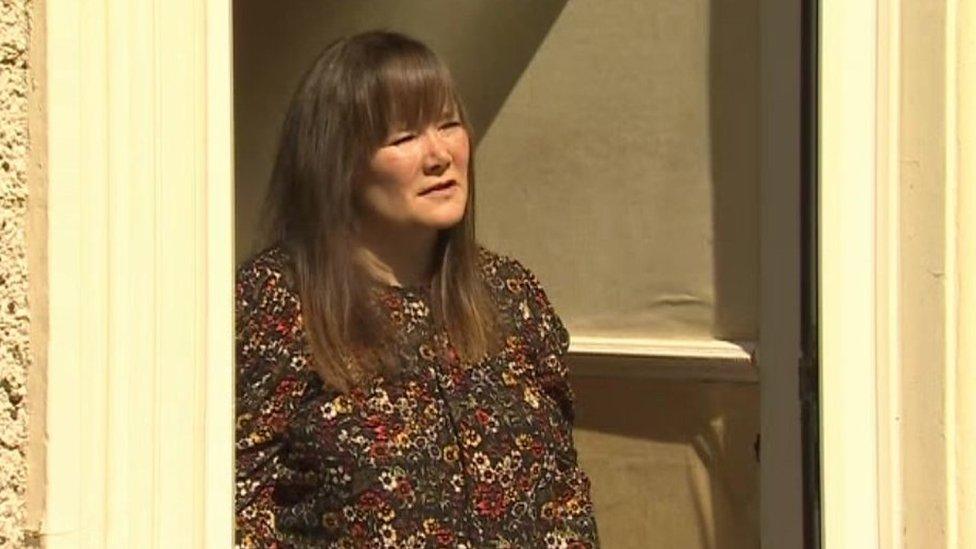
Helen Millington said she did not think her partner would be back in work until next year due to the restrictions
Working families across Wales are getting their first pay packets since the coronavirus lockdown started - and for thousands of them it is much less than they are used to.
While many have been laid off and claimed universal credit, thousands of others have been "furloughed" - sent home on 80% pay.
The first pay day comes as charity Action for Children warned half of children in Wales live in families with no savings to fall back on and two thirds have less than £1,500 in the bank.
Helen Millington said she had to go to the food bank in Caernarfon to feed her two children, as they now only have her low wages coming in.
Her partner Gwyn is self-employed and has been without work since the restrictions were brought in.
While they have put in an application for universal credit, it takes weeks to get the cash.
"I cried the whole way home from the food bank, having been there and thinking, with me working this is what it's come to," she said.
"It's not just affected us financially but mentally too. I can't see Gwyn going back to work now until next year maybe, next spring probably now with all of this. So it's going to be a long period of time."
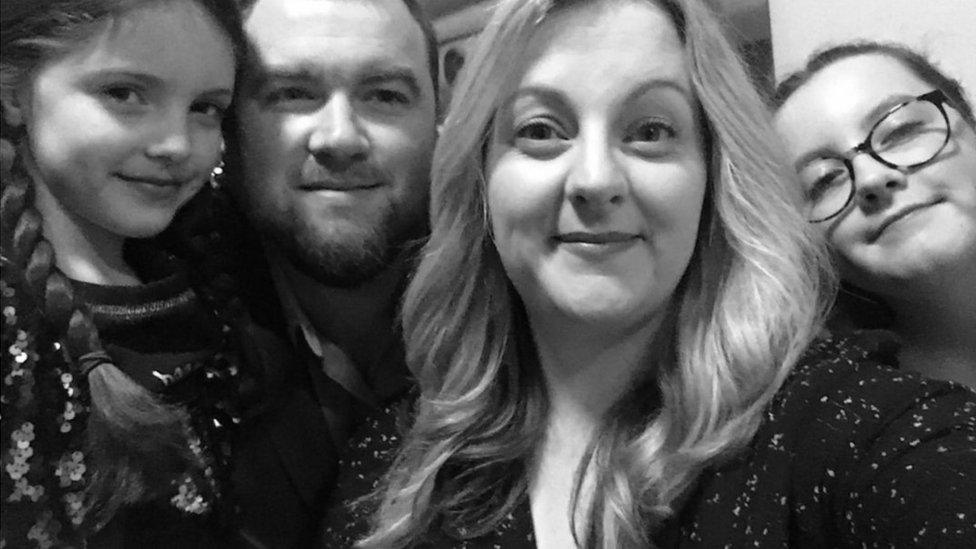
The Vaughan family say their monthly income has dropped by £500
Kayleigh Vaughan's husband Huw works at the opencast mine in Rhigos, between the Vale of Neath and the Cynon Valley. She said he was bringing home about £500 less a month after being furloughed.
Mrs Vaughan said they do not usually save much, with everything budgeted, and does not believe they will be able to afford a family holiday this year.
"There is not a lot of leeway in there," she said.
She has also found it more expensive having her two daughters at home, with their food bill tripling.
"We are not driving to work so we are saving on fuel and things, but that money is certainly not being saved it is going into the food pile," she said.

The area where the Vaughans live has a number of employers, including businesses serving tourists visiting Glynneath to walk to the Pontneddfechan waterfall
Mrs Vaughan herself works for a family-run firm of financial advisors and is working at home, with her children at the kitchen table, while school is closed.
The Office for National Statistics said 27% of workers had been put on the furlough scheme.
Only 1% of 6,000 businesses it surveyed said they made redundancies between lockdown and 5 April.
Mrs Vaughan's parents Gary and Julie Morgan have run Charlie's Cafe in Glynneath, Neath Port Talbot, since October, which had been doing well with residents and tourists.
Some Fridays they would take £350 but, now they are closed, food deliveries bring in £50 a day while they still have the £758-a-month rent to pay.
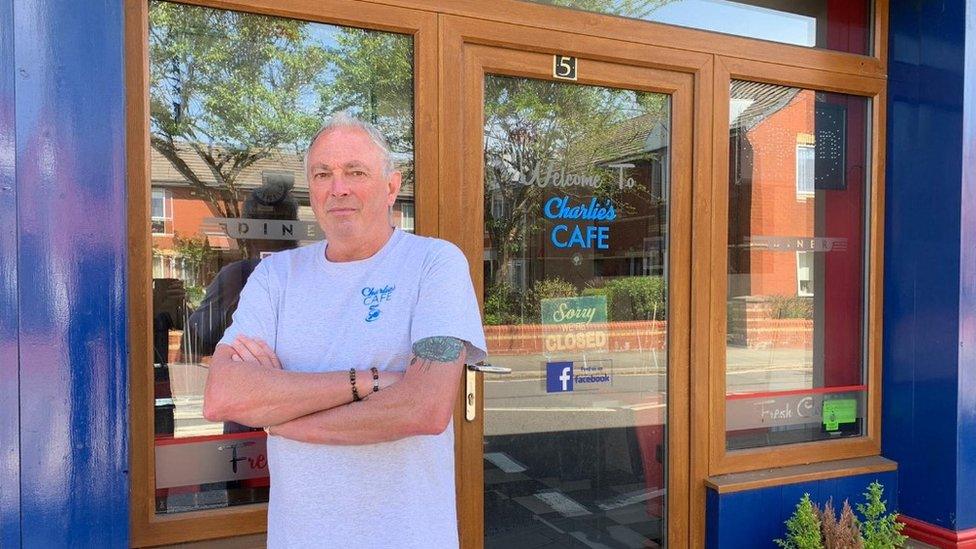
Gary Morgan's business was growing after opening his cafe in October
Mr Morgan said: "Since Covid-19, my business has gone down at least 90% because no-one can come into the café.
"Hopefully this will be over in about four weeks and we can start building again."
Across the road, Dean Waters only opened his food shop at Christmas.
The plan was to sell fine food not available in the area.
Now, with the lockdown, he is selling fruit and veg to local people and delivering to those who are not able to go out.
"In a way, the orders from vulnerable people has helped me," he said.
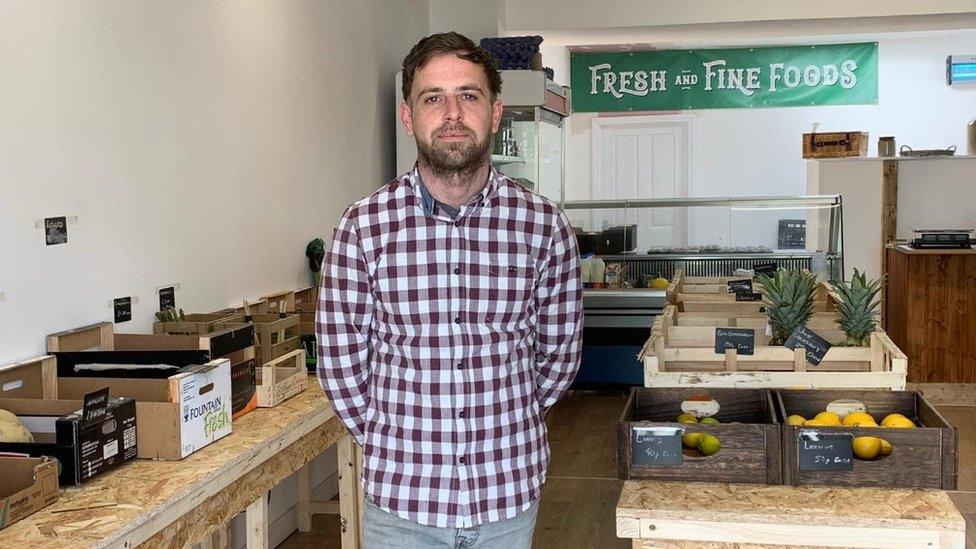
Dean Waters has had to temporarily change course with his new business
But Mr Waters also recognises the lockdown has hit pockets in this community, which at its best has lower employment than most of Wales and incomes for those working are average.
He said: "I don't know how the families are coping. If you have got a family, usually one parent will have to stay at home to sort out kids with school and stuff. And then there is one bread winner.
"That 80% must be affecting them because we are on such low wages really. The income - I imagine if you look at the national average - is low round here. I don't know how they are coping to be honest with you."
- Published30 September 2021
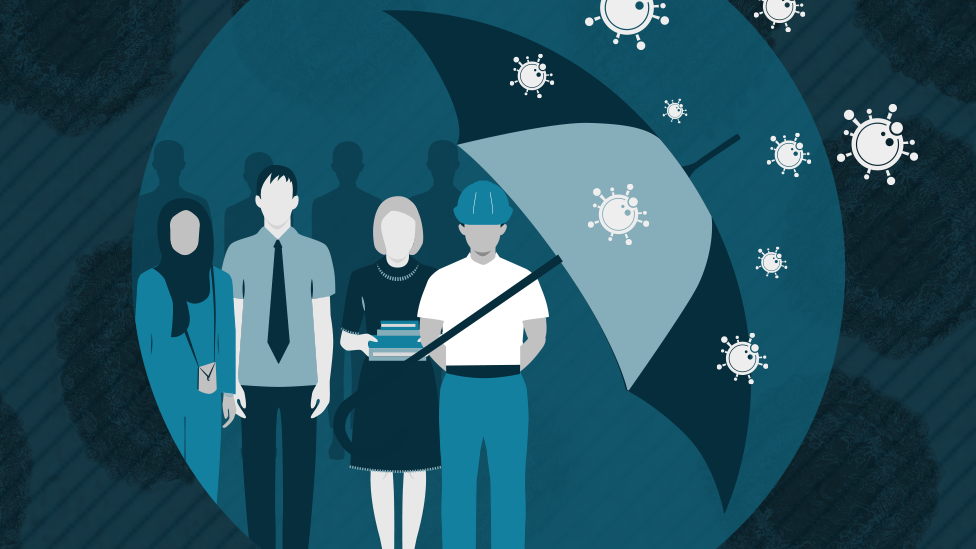
- Attribution
- Published18 April 2020
